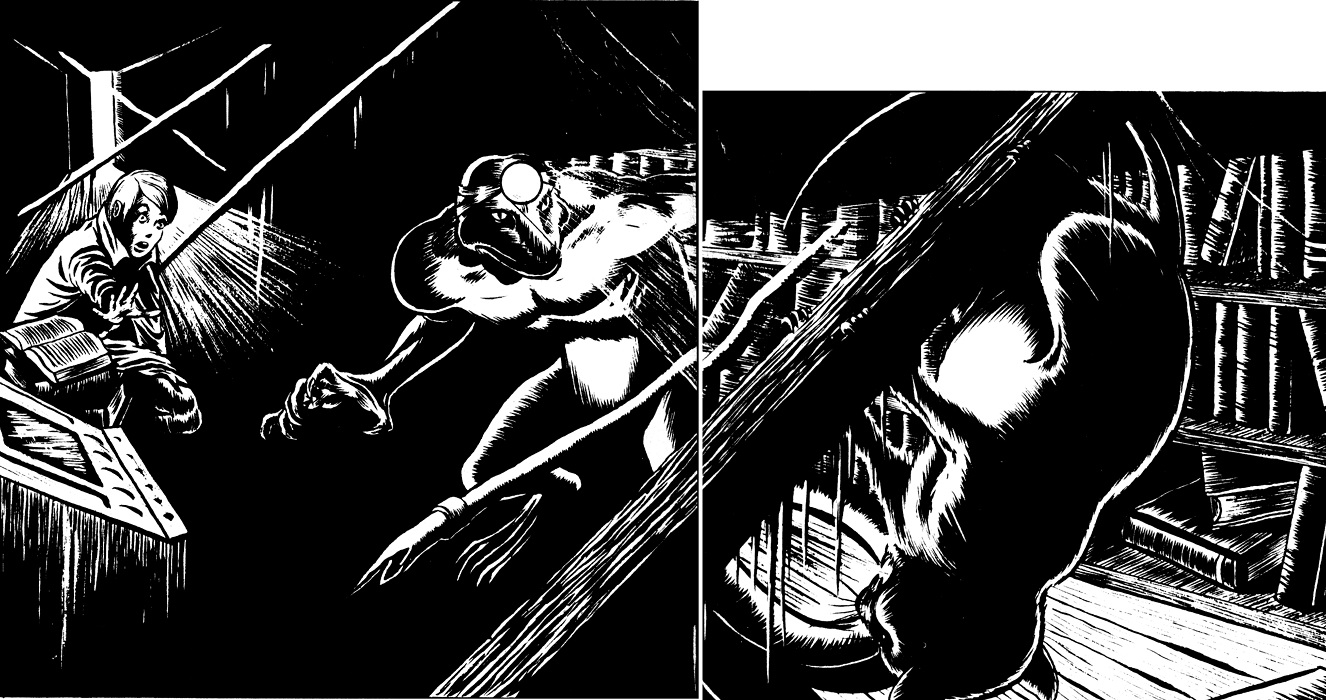
by David Levinson
A piece of the rock
Anyone who pays more than casual attention to U.S. domestic news is probably aware of the Black Power movement, but how many have heard of the Red Power movement? Those whose ancestors were in what is today the United States have been shamefully treated. They’ve been repeatedly driven from their homes and sacred lands, seen treaty after treaty ignored and violated, been robbed of their languages and religions, and much more. Now some of them are trying to regain some of what they’ve lost.
Back in 1963, the federal prison on the island of Alcatraz in San Francisco Bay was declared no longer fit for purpose and shut down. A Sioux woman living in the area recalled that the 1868 Treaty of Fort Laramie promised that land occupied by the federal government would revert to the native peoples if it was no longer in use. In March of the following year, she and several others staged a four-hour occupation of the island and filed a claim. They left when threatened with felony charges.
Last October, a fire destroyed the San Francisco Indian Center, and the loss of the space reminded Native Americans in the Bay Area of one of the proposals for the use of Alcatraz by those earlier protesters. On November 20th, a group of 89 people calling themselves Indians of All Tribes set out to reach Alcatraz, with fourteen of them successfully reaching the island. They have since been joined by many more; there are a few hundred people there now.
 Some of the occupiers a few days after arriving on Alcatraz.
Some of the occupiers a few days after arriving on Alcatraz.
There have been difficulties. Water and electricity are particular problems. Many hippies flocked to the island until non-Indians were prohibited from staying overnight. A fire in early June destroyed several buildings. And in May, the government began the process of transferring Alcatraz to the National Park System in order to blunt the occupiers’ claim.
However, they’ve garnered a lot of attention and support, including from many celebrities. They have also inspired other protests in favor of Indian rights. After a Menominee woman in Chicago was evicted following a rent strike over repairs not being made, a protest camp was set up in a nearby parking lot, starting with a tepee borrowed from the local American Indian Center. Since it’s right next to Wrigley Field, where the Cubs play baseball, it’s gotten a lot of attention and has been dubbed “little Alcatraz” in the local press.
Will all of this achieve anything? Maybe. The scuttlebutt in Washington is that Nixon is planning a proposal to Congress sometime this month regarding Indian rights. There are no details right now, but it’s expected that he will call for greater self-determination and an end to forced assimilation.
Wallowing in guilt
Guilt can be a powerful motivator. This month’s Venture starts and ends with it. It also crops up in the some of the stuff in the middle now and then.
 Moving away from those abstract covers. Art for Beastchild by Tanner
Moving away from those abstract covers. Art for Beastchild by Tanner
Beastchild, by Dean R. Koontz
When the naoli encountered humans, they decided that, unlike with all the other races they had met, it was impossible to coexist with them. Their war of extermination is almost complete. Archaeologist Hulann finds himself struggling with feelings of guilt. Perhaps that is why, when he discovers a human boy in the ruins of Boston, he fails to report it. If he is found out, he will suffer the wiping of his memory and a complete reconstruction of his personality.
Eventually, he turns traitor and goes on the run with the boy. They cross North America hoping to find the rumored Haven, where the last humans hang on. They are soon pursued by a Hunter, a ruthless and unstoppable naoli raised from birth to be a killer for the government.
 The boy Leo saves Hulann’s life by warning him about a mutant rat. Art by Stillwell
The boy Leo saves Hulann’s life by warning him about a mutant rat. Art by Stillwell
Koontz has developed into pretty good writer since he first appeared on the scene just three years ago, and has turned out some excellent stories without too many clunkers. Assuming this, like the other big stories in Venture, is a condensed novel, it’s actually his fourth attempt at the long form. It’s the first I’ve read and the first we’ve covered, but it’s solid. Most of the flaws could easily be the result of hacking out chunks of the story, like side characters and incidents that don’t appear to aid the narrative much. This one might be worth tracking down when it comes out in full form.
A high three stars, the complete novel might make it to four.
Survival Course, by J.W. Schutz
There are several famous cats in science fiction: Heinlein’s Petronius the Arbiter (The Door into Summer) and Leiber’s Gummitch (“Space-Time for Springers”) come to me right off the top of my head. Roughneck from this story isn’t likely to join them. He’s a pampered ship’s cat accidentally left on a wild planet due to an emergency take-off. He uses up most of his nine lives before his eventual rescue.
 Roughneck faces one of many threats. Art by Derek Carter
Roughneck faces one of many threats. Art by Derek Carter
This is acceptable, albeit forgettable, filler, with something of a 1950s feel. My problem with the story is that I’m an extreme ailurophile, and some truly awful things happen to poor Roughneck. That made it a tough read for me. It ends happily, but he has a lot of scars to show for it.
Three stars.
The Orgy, by Larry Eisenberg
The commanding general of an occupying force on an alien planet is bored. When he hears tales of the sexual prowess of a woman known only as the Enchantress, he becomes curious and seeks out an encounter.
Eisenberg gives us a rather dark story that barely rises to the level of filler. In the time between reading it and writing this review, I forgot everything and had to go back and read it again. It’s not bad, but I’m sure I’ll have forgotten it again by the time you read this.
A below-average three stars.
Books, by Ron Goulart

Goulart continues to not like most books. He dismisses two books unread, based on their opening paragraphs: Alien Island, by T.L. Sherred (three stars from our Brian Collins) and Witch Queen of Lochlann, by George Henry Smith.
He also hates The Making of Kubrick’s 2001, edited by Jerome Angel, dismissing it as a scrapbook. Also not worth your time according to Ron is Technological Change, by Emmanuel G. Mesthene, although he does recommend getting a look at the bibliography and finding those books.
Yet another book not worth Ron’s time is D.G. Compton’s The Steel Crocodile, calling it “a synthesis of other glum technological futures,” while Brian gave it four stars. Meanwhile, I can’t tell if he deems Robert E. Howard’s The Moon of Skulls “barely readable” because of the writing or the publisher’s “awful typography.”
Wonder of wonders, Goulart actually likes some books this time out. Less surprising is that most of them are older. Land of Unreason, by Fletcher Pratt and L. Sprague de Camp came out in 1941, and The Spirit of Jem, by P.H. Newby, originally appeared in 1948. Arthur O. Friel’s The Pathless Trail, the one book Goulart praises most enthusiastically, is from all the way back in 1922.
Finally, there is one new book which he mostly likes: The Year 2000, by Harry Harrison. Victoria Silverwolf’s recent detailed review of the collection is probably more worthwhile, though they both really liked the Chad Oliver story.
That’s ten books covered in just over three pages, with one of those pages being almost entirely introduction. It’s not enough space. Goulart is probably the worst reviewer in the pro mags (and worse than all the Journey reviewers). Not because he pans everything, but because the reasons behind most of his bad reviews are highly idiosyncratic, while he tends to say very little about books he liked.
How We Won the Monodyne, by Joseph Renard
The story of how a group of American Indians took control of the United States’ sole power source and almost forced all the white people to go to the moon, told through speech transcripts and government memos. It’s garbage. Let me be more explicit. It’s racist garbage. It could be argued that this is intended as satire, but if so none of it lands.
One star.
Prosthete, by Basil Wells
Ruhl Allison is consumed with guilt over the accident that cost him an arm, a leg, and left him horribly scarred; it also left his fiancée without arms or legs and unable to see or speak. He has thrown himself into a project involving the mental control of a tiny flying device. As the project nears completion, he realizes that it may have applications to his own problems.
 Art uncredited
Art uncredited
This one is pretty good, at least if you don’t think about the ending too hard; presented as happy, there are unpleasant undertones to it.
Three stars.
Summing up
With a single exception, this is a solid issue. I’m most interested to see how Beastchild works as a full novel. I’ve been watching Koontz since his debut, expecting good things. He might have reached the point where he’s someone we’ll still be reading fifty years from now. While most of the rest isn’t bad, I doubt anyone will remember any of it, even if the authors go on to be remembered.




Thanks for covering the protests on The Rock!
With re: to the "complete novel", the last "complete novel" in Venture actually was published with no changes, so I have to wonder if any expansion will be made to the Koontz.